PENGUIN

CLASSICS
ONE HUNDRED POETS, ONE POEM EACH
PETER MACMILLAN is a translator, poet and artist. His earlier version of the One Hundred Poets, One Poem Each (Hyakunin isshu) was awarded the Donald Keene Center Special Prize for the Translation of Japanese Literature and the Special Cultural Translation Prize from the Japan Society of Translators, both in 2008. He has also published a collection of poetry, Admiring Fields, while his series of prints, Thirty-Six New Views of Mount Fuji, has been widely exhibited in Japan and other countries. His translation of The Tales of Ise was published in Penguin Classics in 2016. Peter MacMillan is Translator in Residence at the National Institute of Japanese Literature.
Translated with a Commentary by
Peter MacMillan
ONE HUNDRED POETS, ONE POEM EACH
A Treasury of Classical Japanese Verse
PENGUIN CLASSICS
UK | USA | Canada | Ireland | Australia
India | New Zealand | South Africa
Penguin Books is part of the Penguin Random House group of companies whose addresses can be found at global.penguinrandomhouse.com
A previous version of this translation was published in the USA by Columbia University Press 2008
Revised edition published in Penguin Classics 2018
Translation and Commentary copyright Peter MacMillan, 2008, 2018
All rights reserved
The moral right of the translator has been asserted
Cover: Yasushi Yokoiyama, Fujitsu Ni Homen (In a Little While Things Will Get Much Better). Translators collection
ISBN: 978-0-141-39594-4
List of Illustrations
The illustrations in the book have been taken from Yasushi Yokoiyamas complete series of the Hyakunin isshus one hundred poets. All images are courtesy of Peter MacMillan.
Introduction
What is the One Hundred Poets?
One Hundred Poets, One Poem Each (Hyakunin isshu) is a private compilation of poems dating to around 123040 and assembled by the renowned poet and scholar Fujiwara no Teika (11621241). The best-loved and most widely read of all Japanese poetry collections, it was also the first work of Japanese literature to be translated into English by Frederick Victor Dickins (18381915) in 1866. There are three main reasons for its popularity. Firstly, its compiler, Teika, a scholar, theoretician and philologist, was the most admired poet of his time. Secondly, as a collection of one hundred of the best poems by one hundred representative poets, it provides a convenient introduction to the finest Japanese poetry from the late seventh to the early thirteenth centuries. Finally, it has endured thanks in part to the countless paintings, illustrated editions, commentaries and even a card game that have been inspired by it.
Along with The Tales of Ise and The Tale of Genji, the One Hundred Poets is one of the three most influential works of classical Japanese literature. It has had an almost inestimable influence on Japanese culture and the visual arts at every level: every major Japanese print (ukiyo-e) artist has illustrated the entire collection, for instance. For hundreds of years it was the primer of Japanese classical poetry, and even today it is still the most widely known collection of Japanese verse, despite the fact that most Japanese have only the vaguest idea of what the poems mean. There is no equivalent to this short collection in English literature; Shakespeares sonnets may appear close, but less than half a dozen of them are widely taught in schools today, whereas in Japan this book is an essential part of every secondary-school curriculum.
Who was Fujiwara no Teika?
Fujiwara no Teika (also known as Sadaie) was born into a minor branch of the noble Fujiwara family in 1162. His father, Shunzei ( in this collection), was a poet and critic and, in that capacity, held the highest position at the Imperial Bureau of Poetry, unrivalled in his generation. In person, Teika is said to have been irascible and strikingly ugly; but he was recognized as a great poet and authority on waka poetry, and his reputation exceeded even his fathers. Teikas poetic and editorial achievements include poetry collections (both official and private), several one-hundred-poem sequences, commentaries on older works and treatises on poetry. He was also known for his work in philology, including the conservation of many important writings of the Heian period (7941185), such as The Tale of Genji and The Tales of Ise. His Maigetsush (Monthly Notes; 1219) was his Ars Poetica, in which he established the canons of poetic taste that would remain influential in Japan for hundreds of years. In addition, he wrote numerous other poetic treatises, including the Kindai shka (Superior Poems of Our Time; 1209) and Eiga no taigai (Outline of Composition; c.1222), while his own collection of poetry, the Shigus (The Dull Musings of a Chamberlain; 1216) contained over 3,500 poems. The One Hundred Poets is but one of many anthologies Teika compiled during his lifetime. Some of these were intended to be used as textbooks on poetry by aristocratic pupils, and they were still in use for hundreds of years after Teikas death. Though One Hundred Poets was not included among these, it became the textbook par excellence for aspiring poets for the next six hundred years.
) and presided over by Shunzei.
Teika was initially excluded from the list of contributors of a poetry event held eight years later, in 1200, in which twenty-two poets were ordered by Emperor Gotoba (r. 118498) each to compose a one-hundred-poem sequence (known as hyakushu in Japanese). Teika was only included later thanks to his fathers intercession, but Emperor Gotoba was extremely pleased with his selection of poems and as a result granted him access to the imperial palace, a much-coveted honour. A year later, Gotoba ordered thirty of the best poets (including himself and Teika) each to present a one-hundred-poem sequence as the basis for another poetry contest. And from 1201 Teika was also involved in the compilation of the Shin-kokin wakash (New Collection of Poems Ancient and Modern), usually abbreviated to Shin-kokinsh, the eighth of the imperial waka anthologies that had been ordered since the Kokin wakash (Collection of Waka Ancient and Modern), or Kokinsh, was commissioned in 905. Being asked to edit one of these collections amounted to being acknowledged as the foremost literary figure of the day.
Teikas troubled literary relationship with Emperor Gotoba dates from this period. A poet himself (see ), the most influential politician of the period following the fall of Gotoba in 1198.
In 1232, Teika was appointed to compile the Shin-chokusen wakash (New Imperial Waka Collection), or Shin-chokusensh, making him the only poet up until then to have the honour of editing two imperial anthologies. (His son Tameie was later accorded the same honour.) It was completed in 1235 and it was during this decade, the 1230s, that he assembled the


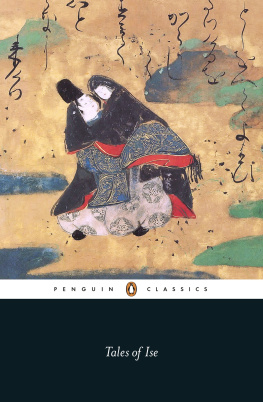
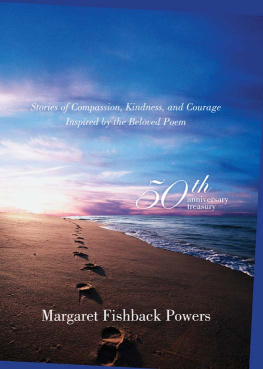
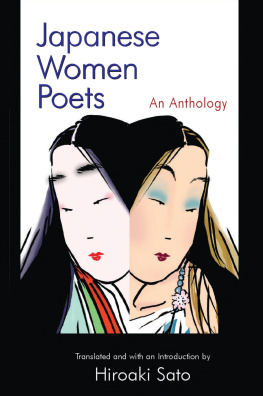
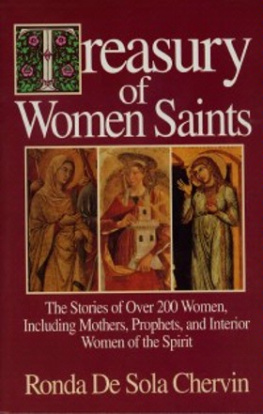

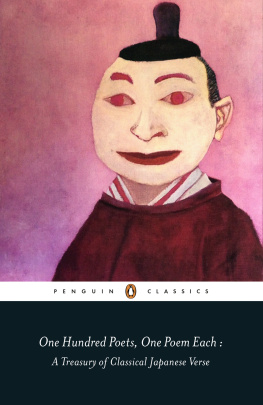

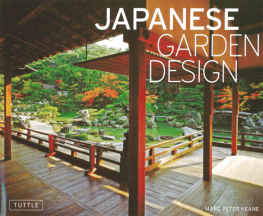

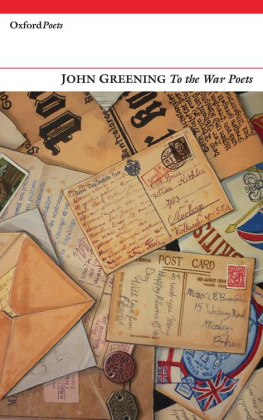
 CLASSICS
CLASSICS
